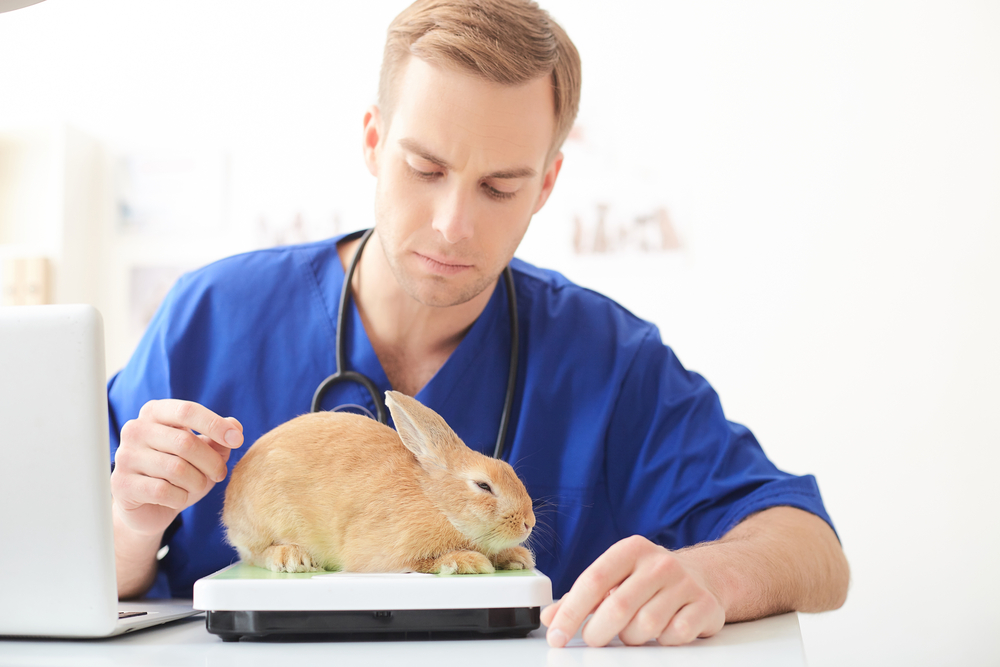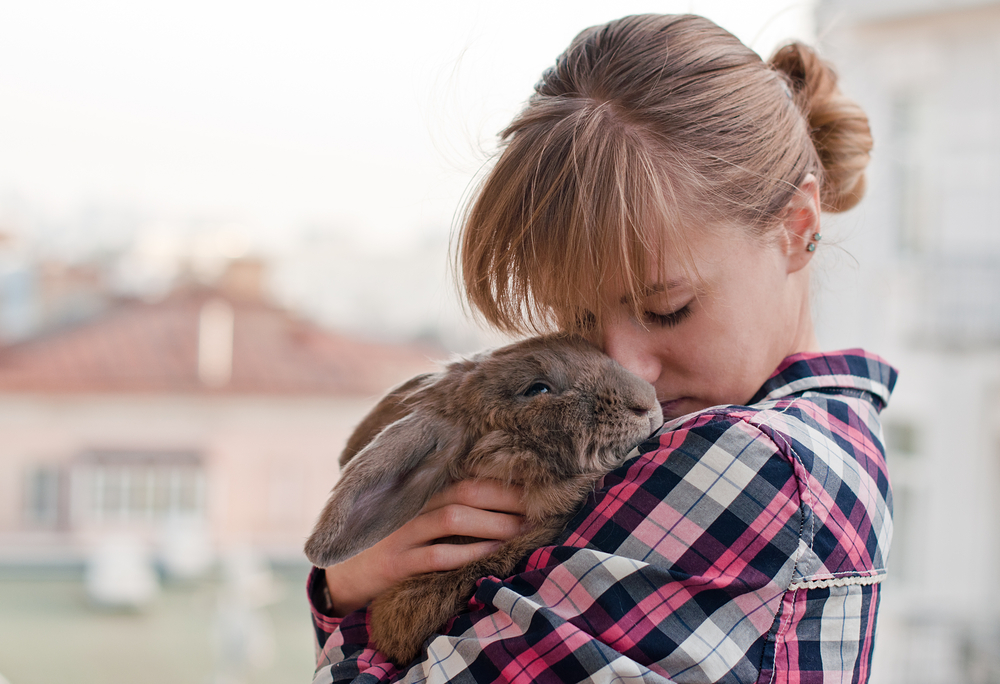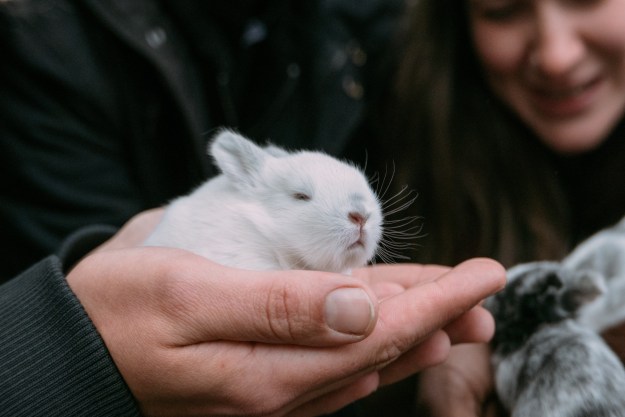Just like humans, bunnies come in all shapes and sizes. And, just as it wouldn’t be prudent to expect a tall, muscular man to weigh the same as his shorter, leaner neighbor, it’s the same with rabbits. One weight does not fit all.
Having said that, keeping an eye on their weight is an important part of their overall health. Work with your veterinarian to establish a healthy weight for your rabbit, then monitor it weekly to maintain its optimal health.
How do I know if my bunny is too fat?
Since rabbits can hide weight loss and gain under their thick coats of fur, it’s best to use a body-assessment process to monitor what’s going on underneath. Use your hands to check these three main areas of the body and make notes so you can monitor any trends.
- Ribs. Place your hands on your rabbit’s rib cage, located just behind its elbows, and press gently. Notice how much pressure it takes to feel its ribs. The more pressure you must exert, the more body fat. If your rabbit is too skinny, its rib cage will feel sharp and defined.
- Hips. Use your hands to gently feel the hips and rump. If you feel any flattening or indented area on the rump or protruding hip bones, your rabbit is likely too thin. Likewise, a rabbit with too much weight may have a more rounded rump with hip bones that are hard to determine.
- Spine. Finally, run your hands down the length of your rabbit’s spine and note what you feel. If the spine feels bony to the touch, your rabbit is on the thin side. Likewise, it will be difficult to feel the spine in a heavier rabbit.
Should I weigh my rabbit?

If you don’t want to rely solely on touch, there are several effective ways to weigh your bunny instead. Keep notes. If you notice any dramatic shifts either way, consult your veterinarian immediately.
Any of these devices accurately weigh your bunny:
- Bathroom scale. If your rabbit is too wiggly and won’t sit still long enough for the scale to register, try putting them in a lightweight box or carrier. You can either deduct the weight of the container from the measurement or simply weigh your rabbit in the same container each time.
- Luggage scale. These traveler’s friends are also handy for weighing your pet. Attach the scale to the handle of your rabbit’s carrier and lift up to get a reading. Just remember to deduct the weight of the carrier or always weigh your rabbit the same way in order to record accurate measurements. Most luggage scales can measure the weight of luggage as heavy as 100 pounds, which should be more than enough to weigh your rabbit.
- Kitchen scale. These are best used for small rabbits. Just make sure you use a scale capable of measuring your particular bunny’s weight. Most kitchen scales can measure up to 11 pounds. The largest rabbit ever recorded weighed almost 55 pounds, so know the limits of your scale before you choose this option.
- Postal scale. Depending on the type scale, these devices can weigh items from 1 to 35 pounds. If you intend to use this option, make sure the scale you own is capable of weighing the size of your rabbit.
Why is my bunny too heavy?
If your rabbit is taking in more calories than it is expending, they will have a tendency to store the excess as weight. In collaboration with your veterinarian, determine whether you should decrease the amount of food you’re feeding it or simply increase the amount of exercise.
Overweight rabbits are at risk of developing a number of medical issues such as arthritis, heart disease, and liver failure. This can shorten their lifespan and reduce their quality of life.
What does excessive weight loss mean?

There are many reasons why a rabbit might be losing weight. It could be diet-related or a medical issue. Common weight loss problems include:
- Not being fed enough food. Some rabbits are energetic and require more calories to maintain their weight.
- Being fed too much of the wrong food. Make sure your bunny receives good quality hay and grass in addition to fresh vegetables and pellets.
- Dental disease. Bad teeth are the biggest cause of weight loss for rabbits and need to be addressed immediately.
- Other medical problems such as a tumor or kidney disease.
Some bunny loves you!
Among the 47 breeds of rabbits you can own as a pet are those that weigh as little as 2.5 pounds all the way to those that weigh as much as 16. Like humans, each rabbit’s weight fluctuates with diet and exercise, so be vigilant. Your bunny’s happiness and longevity depend on your love and care.
Editors' Recommendations
- What fish can live with bettas? These are your best bets for fish buddies
- How long do guinea pigs live? Here’s what to know
- Best reptile pets: These are the 5 most affectionate reptiles you can welcome into your home
- Best hamster bedding: The safest options for your furry friend
- A simple guide to what to feed tadpoles in your aquarium



